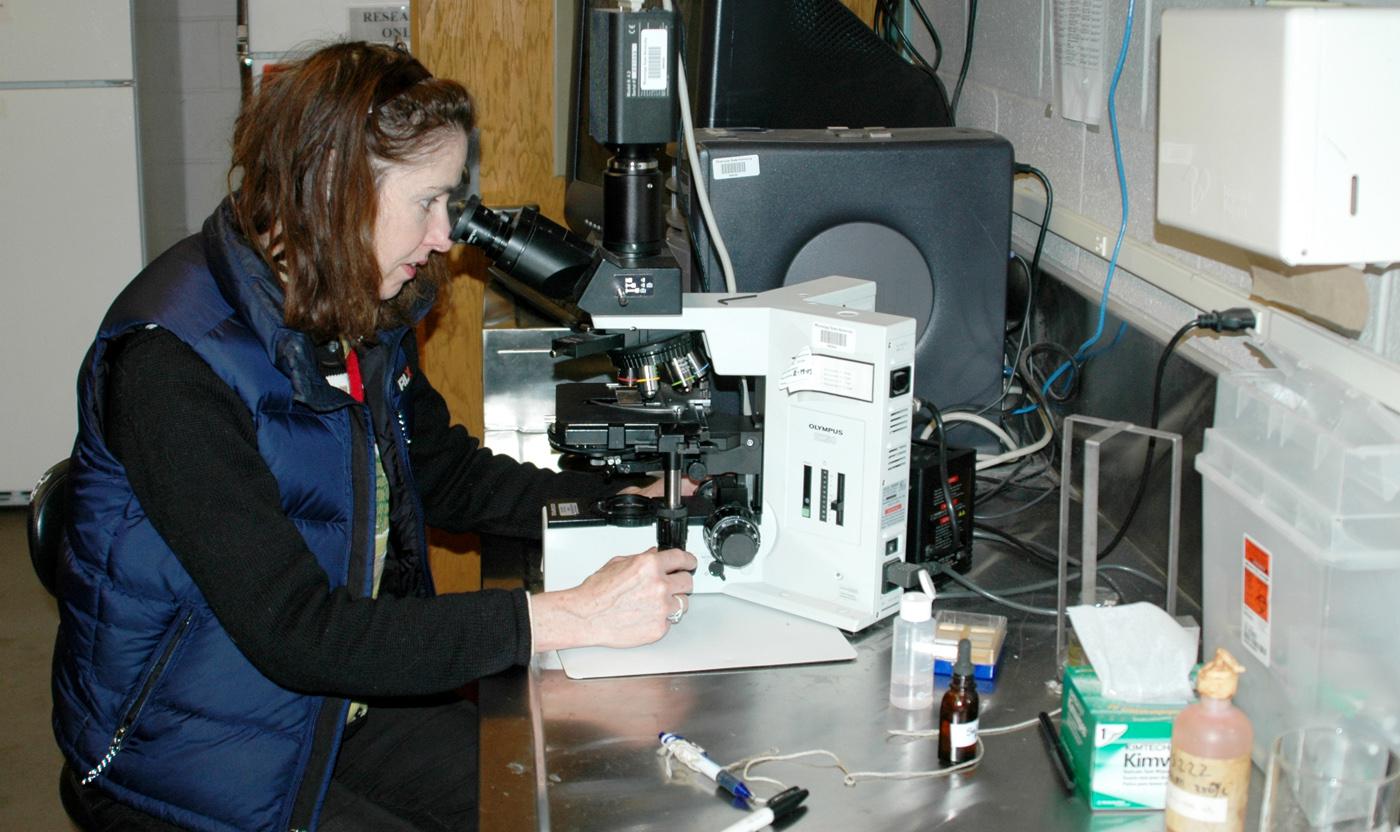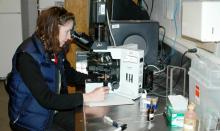Information Possibly Outdated
The information presented on this page was originally released on February 25, 2010. It may not be outdated, but please search our site for more current information. If you plan to quote or reference this information in a publication, please check with the Extension specialist or author before proceeding.
MSU researchers support state's catfish industry
By Rebekah Ray
Delta Research and Extension Center
STONEVILLE -- Mississippi produces more than 60 percent of the nation’s pond-raised catfish, and Mississippi State University researchers in the Delta are working to keep the fish flavorful and safe to eat.
MSU’s College of Veterinary Medicine oversees the Aquatic Research and Diagnostic Laboratory at the Thad Cochran National Warmwater Aquaculture Center. The center is located at MSU’s Delta Research and Extension Center in Stoneville.
“The lab is very much like a veterinary hospital in that it examines fish to determine what is wrong and then prescribes medical treatments, if necessary,” said Pat Gaunt, a veterinarian and associate professor.
“The lab also checks fish to verify the health status before the sale of a fish farm,” Gaunt said. “Producers bring their fish to the lab for us to take gill clips and skin scrapes to check for parasites and to do bacterial and viral cultures. The laboratory also performs analysis of pond water to make sure it’s suitable for raising catfish.”
Bacterial diseases typically dominate cases submitted each year. In 2008, columnaris totaled more than 11 percent, while enteric septicemia of catfish, or ESC, totaled more than 7 percent. Proliferative gill disease totaled more than 33 percent and was the most commonly diagnosed parasitic disease.
“When seasonal temperatures change, occurrence of columnaris disease and ESC increases greatly,” Gaunt said. “Producers can tell if their fish are infected by the bacteria that cause columnaris disease because of the presence of lesions and yellow-brown discolorations around fish mouths and skin.”
The prescribed treatment for columnaris disease is the medicated feed florfenicol, which is the only medicated feed that has been tested and conditionally approved by the Food and Drug Administration for the treatment of this disease.
The lab works closely with fish health professionals to treat aquatic diseases. Gaunt shares on-call duties at the lab with veterinarian Lester Khoo and microbiologist Michael Mauel.
“The lab monitors disease trends, provides surveillance for new and emerging diseases, offers field service investigation and maintains a database of epidemiological information of diseases of catfish,” Khoo said.
The Aquatic Research and Diagnostic Laboratory works in conjunction with the Thad Cochran National Warmwater Aquaculture Center, the Mississippi Agricultural and Forestry Experiment Station, the MSU Extension Service, the College of Veterinary Medicine, and the U.S. Department of Agriculture/Agricultural Research Service’s Catfish Genetics Research Unit.
The lab diagnosed 678 cases last year and analyzed 870 water samples.
Khoo recommended producers take advantage of services provided by the lab, especially during these difficult economic times. Personnel will visit farms if requested.
For more information, contact the ARDL at (662) 686-3302.



